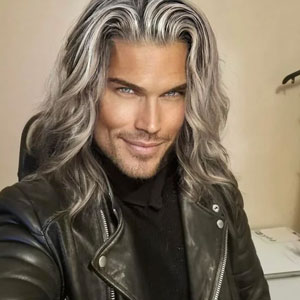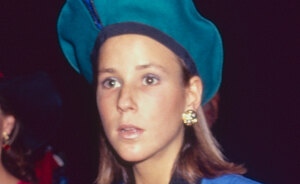Reading about history helps us better understand ourselves and the world around us, but exploring it through visual examples can make our past seem even more real. Like looking at old photographs that let us in on the undoubtedly captivating moments that we may have forgotten or weren't even aware of. However, the color palette we usually associate with these images is a narrow one — black and white. While faded and scratched monochrome photos do have their charm, they can make it difficult for us to relate to the past.
We live in a digital age, after all, and our minds think and remember past events in color, so a colorful photograph should be much easier to identify with, right? Let us introduce you to the aptly titled 'History in Color' subreddit, an online community "dedicated to high-quality colorizations of historical black and white images, and discussions of a historical nature."
To bring bygone days back to life, we have wrapped up a collection of some of the most stunning vintage images from the group. So enjoy scrolling through these multicolored treasures and upvote your favorite ones! Keep reading to also find in-depth interviews with writer and lover of early modern history Jo Romero and professional photo colorization artist Sanna Dullaway. And if you're interested in even more historical photos and the stories behind them, be sure to check out our earlier piece right over here.
This post may include affiliate links.
Samson Beaver, His Wife Leah, And Their Daughter Frances Louise, In Canada In The Year 1907
Sophie Scholl, Founder Of The White Rose Student Resistance Group During The Nazi Regime, Arrested For Distributing Anti-Nazi Leaflets With Her Brother, Executed By Guillotine At Age 22 For High Treason. She Would've Been 100 This Year
"Photography can definitely be a powerful tool in understanding history," Jo Romero, a writer, sketcher, and founder of the blog called Love British History told Bored Panda. "It gives us that link between us and people in the past — we can look into the person's eyes in a photograph and it creates that human connection between us."
After all, exploring historical events is far more than just memorizing a string of names and dates. It is about how people lived back then, and how they molded our society. It is about understanding their dreams, hopes, and fears, and what pushed them to take action and create inventions that they did. "From a photograph too, we can see body languages and poses within a group of people or the way a scene is laid out and this is much more than we could ascertain from reading a book," Jo added. "Photographs help make history seem more real. They're like a viewfinder into the past!"
“The Blanket Weaver” - A Navajo Woman Weaving Under A Cottonwood Tree In Canyon De Chelly, Arizona. Photographed By Edward S. Curtis In Ca. 1905
Portrait Of Joseph Two Bulls, Dakota Sioux, Ca 1900
Mailman N. Sorenson Poses With His Heavy Load Of Christmas Mail And Parcels, Chicago, 1929
I don't know if I respect him more for being able to sort and carry it all, or that he doesn't look the least bit cold in winter.
The blogger pointed out that history is an extremely varied topic. "We have so much we can learn from the visual evidence that we have, whether that's a portrait of a person or a snapshot captured of a group or scene," she said, adding that visual media helps make the past seem more accessible and that we can see photos like we see historical artifacts. "They add interest and give us context."
"It's one thing to read about your great-great grandfather on a page but then to see a colorized photograph of him and look into his eyes, it's completely different," Jo told us. "I think that colored photos of people or scenes evoke a much stronger emotional reaction, and it's great that they can be used alongside written sources for context. Not everyone wants to learn just by reading, and using different visual sources can help keep our interest and curiosity up and make the topic a lot more engaging."
Two American Soldiers Proudly Show Off Their Personalized "Easter Eggs" (155mm Artillery Shells) Made Especially For Adolf Hitler, 1945
The O’halloran Sisters — Armed With Poles And Boiling Water, They Fended Off The Officers Evicting Their Family During The Irish Land War, In The Year 1887
The second lady from the left has a sassy attitude, better not mess with her I reckon!
The Monumental Love Story Of Richard And Mildred Loving LED To The Historic Supreme Court Case Sweeping Away The Latest Segregation Laws In America.
Jo personally loves to see old photos restored in color. "There's just something about seeing a black and white photo and then looking at the colored version that brings it almost to life," she explained. "We establish a connection with not only the subject but also the photographer, so we see exactly what they saw through their lens that day as if we're seeing it now and are part of the scene in a way." The history lover added that discovering the past through high-quality colorized historical photographs simply makes it seem "much more relatable to us and we want to discover more."
Portrait Of John Smith, Also Known As The White Wolf, Elderly Native American Chippewa Of Cass Lake, Minnesota, In Traditional Dress, 1914. (Probably Born Between 1822 And 1826, Although Presumably As Early As 1784; Died In February 6, 1922)
Granny Winning First Prize For Her Marijuana Plant At The California City County Fair Back In 1973.
Amelia Earhart
My 9th cousin. I have always admired her adventurous spirit. At least she died doing what she loved.
We also got in touch with Sanna Dullaway, a Swedish colorization artist living in Belgium, who was kind enough to have a little chat with us about photo colorizing and the whole process behind it. Sanna revealed to Bored Panda that she has been coloring both public and private photographs and turning black and white memories into vivid colors for over a decade now.
"When I started, I was not aware of anyone else doing this online. It's something I figured out for myself by playing around in Photoshop,” Sanna told us. The idea came to her while she was listening to Rage Against the Machine one day and saw the album cover of a song — it was a photo of the Buddhist monk Thích Quảng Đức who set himself on fire in protest of the South Vietnamese government persecuting other Buddhists.
The Art Painter Claude Monet Is Photographed In His Garden In Giverny, 1899
Portrait Of Three Horses, Photographed By Edward S. Curtis In Ca. 1905
Elvis Presley And His Parents, 1937
"The photo was in black and white, and I remember thinking the fire and the rest of the photo would have much more impact if it was in color," the artist mentioned. "I had a big interest in Photoshop at the time and loved playing around with the software so I simply tried coloring the fire by selecting it, and then applied a gradient to the fire within 'Color blending mode'."
"The result looked so amazing that I realized I could probably do the rest of the photo using the same technique, and I posted the result on Reddit," she told us, adding that it immediately hit the front page and stayed on there for nearly two days. After her work went viral, people all over the world started reaching out to her, asking if she could color their photos too. "I realized this was something I had a talent for and loved to do, so I simply continued! Now, ten years later, I still work with this full-time, coloring photos for magazines, museums, and people's own family album photos."
Photo Of Charlie Chaplin As A Young Man Without Makeup On In Circa, 1916.
A Funny Photograph Of The First World War, German Soldier In The Snow With Only A Helmet, Boots And A Tank Top With A Cat On His Head. 1916.
Ron Stallworth (Pictured Here In 1975) Was The First Black Detective In The History Of The Colorado Springs Police Department. He Infiltrated The Ranks Of The Ku Klux Klan In Colorado Springs, Colorado, Becoming A Member Too In The Late 1970s.
We were curious to learn more about the process of colorizing black and white photos itself. Sanna revealed she always starts by restoring the original image if it has any damage like scratches, spots, or the wrong exposure.
"Next, I mask and layer every single object in the photo, starting from the foreground working my way back in the background," the artist continued. "Locking these layers allows me to precisely color them without any bleeding issues. They are all set in Color blending mode — this mode allows the luminosity of the photo to stay intact as you give it color. This technique is easily available to anyone and hasn't changed since the day I started coloring."
Ukrainian Bride In Traditional Folk Costume, In The Year 1875
Group Of Women With Their Automobile Outside The White House, In The Year 1922
Halloween In The Early 1900s
One key characteristic that sets her colors apart from others is her many years of experience that allow her to make educated guesses, Sanna pointed out. "Natural colors are easy to guess the color of, trees, sky, earth, skin — these things looked the same 100 years ago as they do today, so are easy to reference."
However, she stressed that when it comes to man-made items, the process can become a bit more complicated. "[Objects] that change through time like textiles, building materials, cars, are all things that vary greatly from decade to decade and even year by year," Sanna explained. "You will have to research these as best you can using sources such as online collections from museums to more accurately pinpoint the correct color of the era."
Moreover, there are always moments when Sanna can’t find the needed information about the specific item or place she’s trying to restore, "and that's where you have to make your best guess."
Leon Trotsky, Frida Kahlo, Natalya Sedova, Mexico, 1937
Benito Mussolini Is Arrested, 1915
Yeah, the second time he was arrested in 1944, it ended up a lot worse.
“Titanic Orphans” Michel & Edmond Navratil, Named So When They Turned Out To Be The Only Children Who Remained Unclaimed By An Adult After Being Rescued From The Titanic, In 1912
Michel Navratil was the eldest of two children born to Michel Navratil Sr. and his wife Marcelle. Using the alias "Louis M. Hoffman", borrowed from a friend of his father's, his father boarded the Titanic on April 10, 1912 at Southampton with him and his brother Roger (born March 5, 1910) as passengers . The reason was a bitter custody battle in France with Marcelle, in which Michel Navratil senior kidnapped the children. On the night of April 15, 1912, the boys were asleep when their father burst into their F-2 cabin, waking them and carrying another passenger through barriers and corridors to the boat deck. Here he took the children into the folding boat D, the last lifeboat to leave the port, and told them to say hello to their mother. Michel Navratil Sr. died that night. After the sinking, first-class passenger Margaret Hays agreed to look after the boys upon their arrival in New York City, as they were the only children to survive without parents or guardians.
The photo colorization artist stressed that the most important thing you need is knowledge and understanding of how color and light interact with one another. "How light bounces off reflective surfaces, changing the color depending on the scene — is the photo taken in bright sunlight? Overcast weather? Indoors with a single lightbulb illuminating the subject from a specific angle?" Sanna noted that these are all factors she has to consider before colorizing an old photo.
Vincent Van Gogh At The Age Of 19, 1872.
Hakone, Japan, A Tree-Lined Avenue Ending In A Flight Of Stairs To A Temple, Photographed By Felice Beato In Ca. 1868
The Bin Ladens In Sweden, 1971
Islamic terrorism was a tool manafactured to achieve certain political objectives. It wasn't some random Muslims gone rogue as many believe. Binladen is a good example of that.
When asked about her own opinion about old colorized photographs, Sanna thinks that her generation has a difficult time relating to the content of these images. "We see black and white photos as something distant belonging to another era, something that happened so very long ago. Looking back at those pictures almost gives you an 'us and them' feeling. We perceive the black and white world differently from the colored world we're accustomed to."
"But today, most of us grew up with photos being in color, and we all see life in color — it is the most natural thing to us. So when we add color to black and white photos, it makes us think, 'Hey, they were just like us!'" she said, adding that colors bring us closer to the past.
Sorrento, On The Amalfian Coast, Italy In The Year 1888
The Peaky Blinders Were A Criminal Gang Active In Birmingham In The 19th Century
Frida Kahlo Keeps A Sugar Skull, 1951.
Boxing Aboard The U.s.s. New York In The Year 1899
A Proud Fijian Man (Republic Of The Fiji Islands). An Unusual Portrait, Showing The ‘Wasekaseka’ Split Sperm Whale’s Tooth Necklace From Fiji Which Was Typical Neck-Dress Of A High Ranking Tribesman, Ca. 1880.
Bull Chief, Warrior Of The Apsáalooke (Crow Tribe), Photographed By Edward S. Curtis In The Year 1908
So much sadness in his eyes, yet determination in his mouth. This picture sears into my heart and soul.
Serbian-American Inventor Nikola Tesla, Probably In His New York Laboratory In The 1890s.
Wassily Kandinsky And His Cat Vaska, 1910s
You wouldn't immediately think such a formal gentleman could produce such wild, exotic and beautiful art!
A Tewa Girl Of The Pueblo Peoples, In Ca. 1906
The Lone Hawaiian Surfer Wearing The Malo At Waikiki Beach Carries One Of The Last Alaia Surf Board. The Surfer Was Charles Kauha, 1898.
During The First World War, Ernest Hemingway Volunteered To Serve In Italy As An Ambulance Driver With The American Red Cross.
Michael Nash. A Photographer Uses His Own Backdrop To Mask Poland’s World War II Ruins While Shooting A Portrait Of A Woman In Warsaw, In November Of 1946.
Wilson Chinn, A Freed Slave From Louisiana, Poses With The Equipment Used To Punish Slaves. Anti-Slavery Activists Have Used Such Images To Raise Awareness Against The Practice. 1863
Phone In The Trench, 1915, Ww1, 4th Battery Of The 10th Artillery Brigade Of The Western Front, Imperial Russian Army
Auguste And Louis Lumière, The Fathers Of Cinema, 1895.
Rollerskating In The Savoy Ballroom, South Side, Chicago, In 1941
Circa 1935: Portrait Of The Spanish Surrealist Artist Salvador Dali.
When a Life magazine photographer went to take his portrait he couldn't find him in his garden. He was sitting in a tree, with a chair, his easel and canvas. My kinda guy.
Katherine Douglas Smith Addressing A Crowd Of Men At Portsmouth, Circa 1910.
Marcel Pliat, 1916, The Only Black Man To Serve In The Russian Imperial Air Force During World War I
South End Of Bowery, Coney Island, New York, 1903.
Lucille Désirée Ball At The Age Of Two, 1913.
Stan Lee, Head Of Marvel Comics, Shown In His Offices At 575 Madison Ave., NYC. 1/3/1980.
A colour photo of Stan Lee! From *Gasp* 1980?... What is this doing here?
The Tycoon Samurai Commander Koboto Santaro, 1860. Photo By Felice Beato.
Che Guevara
Hans Scholl, Brother Of Sophie Scholl, Founder Of The White Rose Anti-Nazi Student Movement In Germany
Hugo Gernsback Is An Inventor Of Tele-Glasses Television-Glasses. VR Technologies Of 20th Century. New York 1950.
Sail Wagon In Brooklyn, In The Year 1910
Eleanor Roosevelt Holding Poster Of The Universal Declaration Of Human Rights (In English), Lake Success, New York. November 1949.
Enlisted Men Of Unit 5891-E With Red Cross Canteen Worker, Helen Alston, Before Sailing Overseas, 1944.
The Cutter Sisters | Alfred Cheney Johnson
Joseph Stalin, Franklin D. Roosevelt And Winston Churchill, During The First 'Big Three' Conference, November 1943
The Painter Xavier Martinez Works On A Portrait Of His Friend Jack London, 1905. This Painting Disappeared In The 1906 San Francisco Earthquake.
Portrait Of An Unknown Woman, Sixth Plate Tintype
Portrait Of The English Naturalist Charles Darwin (1809-1882) Taken C.1854 When Darwin Was 45 Years Old.
Robert Capa Sicilian Peasant Telling An American Officer Which Way The Germans Had Gone. Near Troina. Italy. August, 1943.
Amelia Earhart, Ruth Nichols And Louise Thaden At The National Air Races, Los-Angeles, 1933
Charles Darwin Riding His Horse Tommy Out Of Down House, 1867. He Began Riding For A Matter Of Health.
Theodore Roosevelt At Montauk, Long Island, Circa 1898.
Captain Robert Falcon Scott And Other Expedition Members During The Terra Nova Expedition To The Antarctic, 1911.
"I am just going outside and may be some time”. These were the last words of the Antarctic explorer Captain Lawrence Edward Grace "Titus" Oates (1880–1912). He uttered them prior to walking into a blizzard and certain death.
City Hall & Park Row, New York City In The Year 1916
Cranio-Facial Injury: A French Soldier With A Wounded Forehead, Before Plastic Surgery. Photograph, 1915.
Factory Workers & Their Two Cats At A Manufacturing Company That Assembled Cadillac Cars, In The Year 1903
My cousin in law is traveling all over with his cat that he found one night! He puts her in a bubble backpack for cats and they are seeing famous places !
Alexander Schmorell, Founding Member Of The White Rose Nazi Resistance Movement, And Later A Saint Of The Christian Orthodox Church. Executed In 1943 By The Regime For Distributing Leaflets Together With Sophie And Hans Scholl
Mah-Jong At Bathing Beach, June 6, 1924
Battery Park, NY, On A Hot Day, Circa 1910-1915.
West Palm Beach, Florida, Circa 1910.
Abraham Lincoln, Candidate For U.S. President. Half-Length Portrait, Seated, Facing Front, "Without Beard". 1860.
I believe an earlier post on BP stated that Lincoln grew his beard on the advice of a little girl who wrote him saying he would look good with a beard.
An Orchestra Jamming Away On The Ocean Liner 'Ss Leviathan', Somewhere Over The Atlantic In The Year 1926
Actor Ronald Reagan (40th Potus) Poses For A Sculpture Class At The University Of Southern California In 1940.
Edgar Allan Poe, Between 1844 And 1847.
Tolstoy In His Office In Yasnaya Polyana March 27, 1909.
Us Medics Help Wounded Soldiers On Omaha Beach On D-Day.
Clark Gable Reading Margaret Mitchell's Novel "Gone With The Wind" 1936/9.
Rare Photograph Of Revolutionary Veteran Who Lived Until The Dawn Of Practical Photography In The Early 1840s.
Children Looking At Xmas Toys In A Shop Window. New York, Circa 1910.
Godzilla 1954.
African American Soldiers Of The 452nd Anti-Aircraft Artillery Stand By And Check Their Equipment While The Convoy Takes A Break In North-Eastern France, 9 November In 1944
19 December 1944 Members Of The Us 823rd Tank Destroyer Battalion, Company ‘C’ Pose In Front Of An M-10. These Men Were Credited With Knocking Out Four S.ss/Pz Abt. 501 Panzer Vi ‘King Tigers’ At Or Around Stavelot, Belgium.
Jasmine Portrait, Dalì Moustache
Photographers And Reporters Observe An Atomic Explosion In The Distance. Mushroomclouds Could Be Seen Up To 100 Miles Away In The Distance. This LED To Increased Tourism For Lasvegas, And Throughout The 1950s And Early 1960s The City Capitalized On This Interest.
Rare Image Of King Vittorio Emanuele III Of Savoy With His Wife Elena Visiting The Turin International Exposition 1911.
Albert Einstein In His Study At Princeton, 1947.
Prince Leopold And Prince Arthur, The Prince's Are Both Dressed For The Bal Costumé That Took Place At Buckingham Palace, 1857,
Leopold had hemophilia. His mother tried to protect him (lock him up safely), he insisted on life: he married, fathered two kids, and died (in Cannes, France after an injury) before the second was born. That second child was yanked out of an English school at age 15 and packed off to Germany to succeed as Duke of Saxe-Coburg-Gotha, and later became a Nazi.
Portrait Of Tasker Watkins, Awarded The Victoria Cross: France, 16 August 1944.
Portrait Of Picasso In The Studio In Rue Schoelcher, Paris, 1915-1916.
James Willis, Senior Riding Instructor At The St. Petersburg Officer Cavalry School From 1898 To 1909
Neil Armstrong, Commander Of The Space Ship Apollo 11, Speaking To A Technician During A Suiting At The Kennedy Space Center, Cape Canaveral, Florida. 1969.
New York, Dock Stevedore At The Fulton Fish Market Holding Giant Lobster Claws,1943 May-June.
Gerald R. Ford, Edson Plays Soccer For Pele's Amusement.
Works Near The State Forest, Tambov, Russia, 1906
American Musician (And Actor) Elvis Presley (1935 - 1977) Swims In The Pool Of His Family's Recently Purchased House, Memphis, Tennessee, On July 4, 1956.
Don't you feel old when a website has to introduce Elvis by writing "American Musician (And Actor) Elvis Presley", to me and many, there's only on "Elvis".
The Taj Mahal In Agra, India, Commissioned By The Mughal Emperor Shah Jahan In 1632, Photographed Here By Felice Beato Ca. 1858
The Great Buddha Of Kamakura, Japan, Ca. 1863 As Photographed By Felice Beato
Marilyn Monroe And Tony Curtis In "Some Like It Hot" (1959)
He got so much stick for his comment when asked what was it like kissing Monroe. His reply “like kissing Hitler” was said in exasperation as he couldn’t believe he’d been asked such a stupid question. But everyone saw it as a slight against Monroe.
A Marine Is Transferred By Coast Guardsmen To A Landing Boat Off The Flaming Shore Of Iwo Jima, Wwii.
Petersburg, Va. Officers Of The 114th Pennsylvania Infantry Playing Cards In Front Of Tents. August 1864.
Just saw this picture on Finding Your Roots. Slaves forced to accompany their owners. The torture never ended.
Muhammad Ali Finger-Pointing Joe Frazier, 1974
Charles Darwin, September 1868.
Abraham Lincoln - November 1863 - Washington Dc.
Clint Eastwood Taking A Dip In The Pool, 1964/5.
Move 'em on, head 'em up Head 'em up, move 'em on Move 'em on, head 'em up, rawhide Cut 'em out, ride 'em in Ride 'em in, cut 'em out Cut 'em out, ride 'em in, rawhide
Portrait Of Arthur Moore Lascelles, Awarded The Victoria Cross: France, 7 November 1918.
Plaza De Armas Of San Juan, Old San Juan, Puerto Rico, 1903.
Winston Churchill , 1945.
He had a daughter, Sarah, who danced with Fred Astaire in Royal Wedding!
Ted Bundy 31 Years Old, In Custody, Florida, July 1978, 10 Years Before His State Execution In 1989.
East German Soldiers Set Up Barbed-Wire Barricades, At The Border Separating East And West #berlin, While West Berlin Citizens Watch. - August 13, 1961
President Lyndon B. Johnson Meeting With Civil Rights Leader Whitney Young, June 28, 1966. Author: Yoichi Okamoto
Those looks tell a lot of things, and not necessarily kind ones on behalf of Johnson.
Observing War Games In Redford, New York - 1939
Yet, two years later the war wasn't a game anymore between those three...
Field Marshal Wilhelm Keitel Signs The Act Of Military Surrender In Berlin (8 May 1945).
Tommies Observing The Arrival Of Weaponry Of The British Army, In The Surroundings Of Cambrai, France, In December 1917.
Joseph Goebbels (Center) At The Porcelain Exhibition At The National Museum In Krakow 1934. Next To Him Are Museum Director Felix Koper (Left) And Director Of The Krakow Propaganda Bureau Tadeusz Spalkowski (Right).
Emperor Franz Joseph I At Hunting In Mitterweissenbach (Bad Ischl),1912.
Rhetorical Gestures
Tribesmen Stand By A Captive Gorilla, Congo Circa 1925.
I'm fascinated by old photographs, and these colourisations seem particularly well done, but I always find the coloured ones somehow jarring, I suppose because I'm just used to and expecting black-and-white.
Color photography was developed fairly early in the 1890s. The same photograph would be taken with green, blue, and red filters.
Load More Replies...I'm fascinated by old photographs, and these colourisations seem particularly well done, but I always find the coloured ones somehow jarring, I suppose because I'm just used to and expecting black-and-white.
Color photography was developed fairly early in the 1890s. The same photograph would be taken with green, blue, and red filters.
Load More Replies...
 Dark Mode
Dark Mode 

 No fees, cancel anytime
No fees, cancel anytime 



































































































































































































